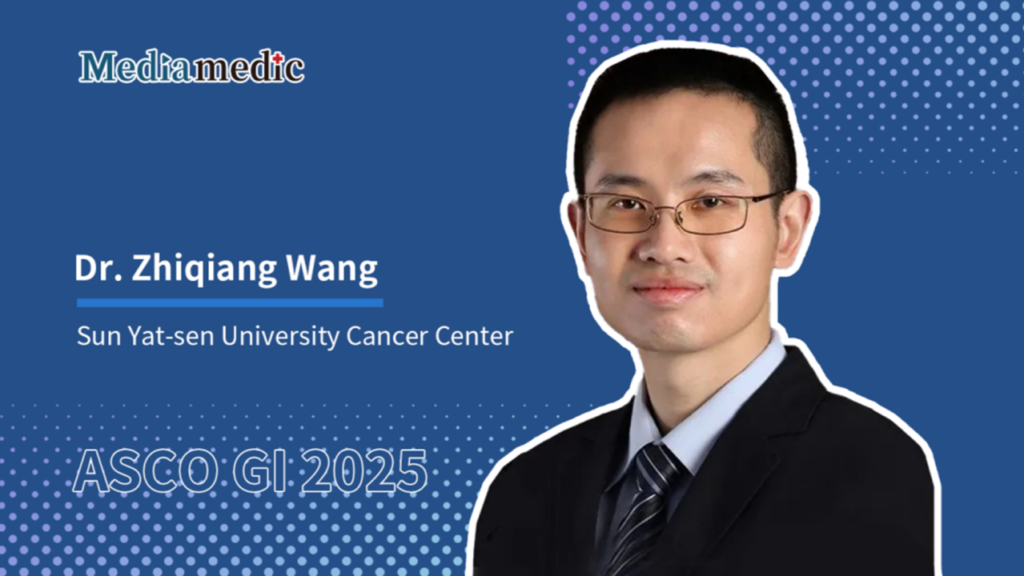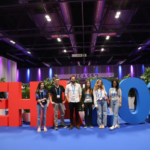
Editor's Note: As one of the most important academic conferences in the field of gastrointestinal oncology, the American Society of Clinical Oncology Gastrointestinal Cancers Symposium (ASCO GI) presents a wealth of early-phase drug development data, key registration studies, major research updates, and subgroup analyses every year. These findings represent the latest advancements in the diagnosis and treatment of gastrointestinal cancers. A Phase II multicenter randomized study led by Dr. Zhiqiang Wang from Sun Yat-sen University Cancer Center, which compared the efficacy and safety of albumin-bound docetaxel versus conventional docetaxel in previously treated patients with advanced gastric or gastroesophageal junction adenocarcinoma, was selected as an oral abstract (Abstract #333) at this year’s ASCO GI.Study title:Efficacy and Safety of Albumin-Bound Docetaxel vs. Docetaxel in Patients with Previously Treated Advanced Gastric or Gastroesophageal Junction Adenocarcinoma: A Multicenter, Randomized, Phase II Study
Oncology Frontier: Congratulations on your study being selected as an oral abstract at this year’s ASCO GI. Could you briefly introduce the background and rationale behind your research?
- Dr. Zhiqiang Wang: In China, gastric cancer represents a significant disease burden, accounting for nearly 50% of global cases. For advanced gastric cancer, both first- and second-line treatment options are still largely chemotherapy-based, with the possibility of combining anti-HER2 targeted therapies and immunotherapy. Globally, second-line treatment for gastric cancer remains chemotherapy-centric according to current guidelines, making the development of new chemotherapy formulations a crucial direction in oncology research. Our study focuses on improving the formulation of chemotherapy agents, aiming to provide better survival opportunities for patients with advanced gastric cancer.
Oncology Frontier: Based on your findings, what are the advantages of albumin-bound docetaxel compared to conventional docetaxel in previously treated advanced gastric or gastroesophageal junction adenocarcinoma?
- Dr. Zhiqiang Wang: Albumin-bound docetaxel is a modified formulation in which docetaxel is encapsulated in albumin, improving both its safety profile and anti-tumor efficacy. The albumin-bound formulation binds to GP60 receptors on tumor vasculature, increasing the concentration of the drug that enters the tumor tissue, thereby enhancing therapeutic efficacy. Additionally, because albumin-bound docetaxel does not contain ethanol or other solvents, it may offer a better safety profile compared to conventional docetaxel formulations.
Oncology Frontier: What are the key adverse effects of albumin-bound docetaxel in clinical practice, and how should they be managed?
- Dr. Zhiqiang Wang: In our clinical study, the overall incidence of adverse events with albumin-bound docetaxel was comparable to that of conventional docetaxel. According to the available data, the primary adverse event remains bone marrow suppression. Given that docetaxel-based therapies are associated with severe toxicities, prophylactic administration of long-acting granulocyte colony-stimulating factors (G-CSF) may be considered to prevent severe myelosuppression.
- Another common adverse effect of albumin-bound docetaxel is edema, which tends to become more pronounced after four treatment cycles as the drug accumulates in the body. This is particularly noticeable in the lower limbs, and in severe cases, it may extend to the abdomen and even the entire body. Effective management of edema requires close monitoring. If significant edema is observed, dose adjustments may be necessary. Our clinical experience suggests that reducing the dosage after four cycles does not compromise the therapeutic efficacy of albumin-bound docetaxel.
Oncology Frontier: What are the future prospects of this treatment approach in clinical practice, and what further research plans do you have?
- Dr. Zhiqiang Wang: We are currently conducting a nationwide Phase III clinical trial, led by Professor Ruihua Xu from Sun Yat-sen University Cancer Center, comparing the efficacy of albumin-bound docetaxel versus conventional docetaxel in second-line treatment for advanced gastric cancer. More than 200 patients have already been enrolled across multiple cancer centers in China. We hope to obtain results within the next two to three years. Our goal is to confirm that albumin-bound docetaxel offers superior efficacy and safety compared to conventional docetaxel, ultimately providing a better treatment option for patients with advanced gastric cancer.
Dr. Zhiqiang Wang
- Associate Chief Physician, MD, Master’s Supervisor, Department of Medical Oncology, Sun Yat-sen University Cancer Center
- Vice Chair, Youth Committee, Chinese Anti-Cancer Association’s Tumor Supportive Care Specialty Committee
- Standing Member, Colorectal Cancer Specialty Committee, Guangdong Anti-Cancer Association
- Member, Esophageal Cancer Specialty Committee, Guangdong Anti-Cancer Association
- Standing Member, Gastrointestinal Oncology Branch, Guangdong Precision Medicine Application Association
- Vice Chair, Clinical Trial Standardization Committee, Guangdong Medical Device Industry Association
- Standing Member, Esophageal Tumor Specialty Committee, Guangdong Clinical Medical Association
- Specializes in the medical treatment of gastrointestinal cancers (colorectal cancer, gastric cancer, esophageal cancer, hepatobiliary, and pancreatic tumors), including chemotherapy, targeted therapy, and immunotherapy


